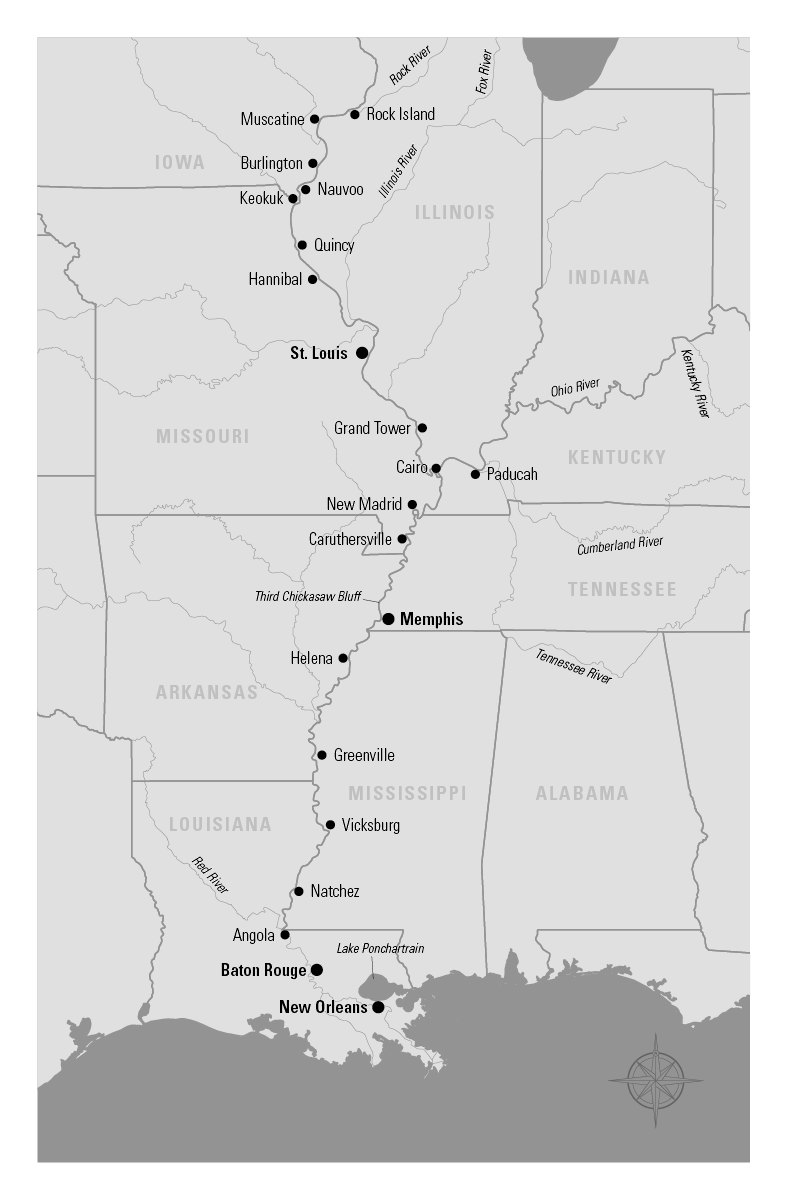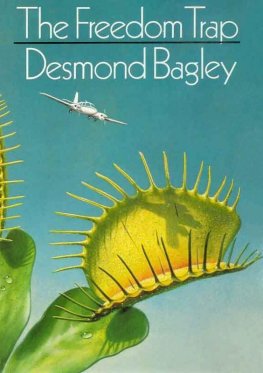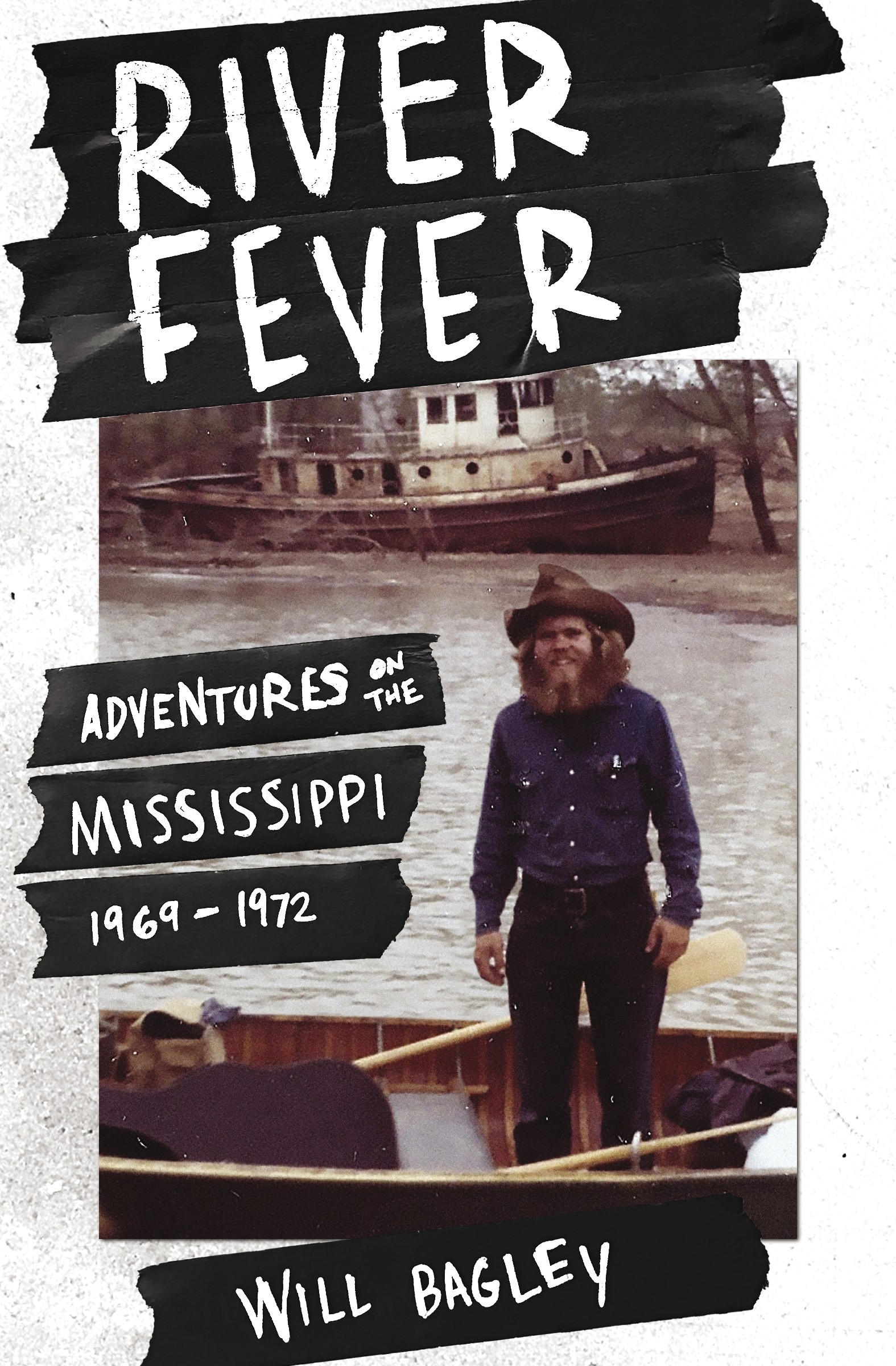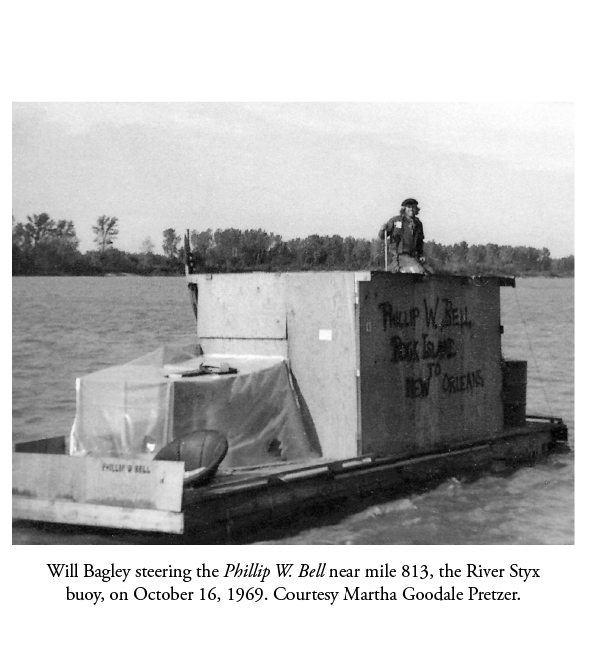River Fever
Adventures on the Mississippi, 19691972
A Memoir
Will Bagley
Signature Books | 2019 | Salt Lake City
For Suzanne
Copyright 2019 Signature Books Publishing LLC and Will Bagley. Signature Books is a registered trademark. All rights reserved. Printed in the USA. www.signaturebooks.com
The opinions expressed in this book are not necessarily those of the publisher.
Cover design by Aaron Fisher.
Map by Jason Francis.
First edition | 2019
library of congress cataloging-in-publication data
Names:Bagley, Will, 1950 author. | Francis, Jason, 1976 cartographer.
Title:River fever : adventures on the Mississippi, 19691972 : a memoir/Will Bagley; map by Jason Francis.
Description:First edition. | Salt Lake City : Signature Books, 2019.
Identifiers:LCCN 2018049037 (print) | LCCN 2018052954 (ebook) | ISBN 9781560853541 (e-book) | ISBN 9781560852780 (pbk.)
Subjects:LCSH: Bagley, Will, 1950 | Mississippi River Description and travel. | Rafting (Sports) Mississippi River. | LCGFT: Autobiographies.
Classification:LCC F355 (ebook) | LCC F355 . B34 2019 (print) | DDC 917.704 dc23 LC record available at https://lccn.loc.gov/2018049037
Contents
Acknowledgements
What profit hath a man of all his labour which he taketh under the sun? One generation passeth away, and another generation cometh: but the earth abideth for ever. The sun also ariseth, and the sun goeth down, and hasteth to his place where he arose. The wind goeth toward the south, and turneth about unto the north; it whirleth about continually, and the wind returneth again according to his circuits. All the rivers run into the sea; yet the sea is not full; unto the place from whence the rivers come, thither they return again.
Ecclesiastes 1:37
So many people helped us, Suzy recalled. This is for all those who made this adventure happen: Howard Amend, Martha Goodale, Suzanne Cooper, Nan E. Cooper, Richard Stockton, Mario Marioncelli III, Diana Harvey, Eric Wood, Ward Stanger, Pedro Castro, Kim McKay, Andy Fuhrman, and Wendell Wright. I owe the people who made me a historianFloyd A. ONeil, Virginia Petch, Michael Landon, Chuck Rankin, Bob Clark, Elliott West, Michael W. Homer, and Laura Bayermore than I can say. Special thanks to artist Curtis Jensen, who converted James Neys photo into a vivid line drawing of our intrepid crew on the dismal morning of September 24, 1969 as we began rolling down the Mississippi. My appreciation for the dear departed, Abe Solomon, John Adams, Roger Pretzer, Joseph Hazard Van Gale, B. Carmon Hardy, Kenneth N. Owens, David L. Bigler, Brigham D. Madsen, Harold M. Schindler, and Larry and Margene Bagley, knows no bounds.
By Way of a Preface
This book began long, long ago, as it was happening. Ninety percent of what you have in your hands was typed by 1975 and digitized via a Wang word processor ten years later. It began as a non-fiction novel and has evolved through variations as a novel and as straight history, but its actually a young mans memoir. Since 1985 Ive tinkered with it about once a decade, but only after attending my fiftieth high school reunion in October 2017 did I read through the entire opus. Rather than replace the arrogance of youth with the wisdom that allegedly comes with age, it mostly stands as written. I have added events such as the account of the May 1969 Peoples Park march to try to capture the spirit of the times. Experience compels historians to be suspicious of that willful trickster, memory. Messing with this manuscript has demonstrated that if the mind cant remember some ancient event, it will make it up to fill in the details. Rather than remake this as an old mans book, I have tried to limit revisions to essentials and park new prose in the afterword. Revisiting this forgotten lore made me wonder if I remembered anything at all about being Bill Bagley, a name I havent used for forty-three years. Reading the manuscript indicates I recall more than I thought.

I
The Fisherman
I suppose that Fred got out of bed that morning, fed his dogs, and ate breakfast. I wonder if he ate fish. He probably listened to the radio and heard the latest body counts from Vietnam or another glowing account of the triumphal march of Richard Nixon toward reelection. Im sure he got in his black 1962 Ford pickup and drove down to the river. There he loaded his gear into a battered sixteen-foot aluminum skiff, cranked up his venerable Evinrude outboard, and set off into the dim dawn light on the Ohio River to check the lines and traps hed set the previous night.
It was early March and a layer of bone-penetrating fog clung to the surface of the water. A tornado had just swept up the valley, and the river was in flood, so fishing was off. The rising light revealed a colorless day. The sky was a flat gray from horizon to horizon, the river was the color of steel, and the winter-naked trees lined the bank like skeletons, black and gray with no promise of the spring that was soon to come. A thick morning smell hung on the river, heavy with swamp and rot.
There was a small leak in Freds skiff. When he returned to the landing, he hauled the boat out of the water and turned it over. He built a driftwood small fire and dug up an old coffee can. He began to melt tar in the can.
About this time my dog and I showed up. I was drifting in a twelve-foot wooden boat, keeping in close to the Illinois shore, looking for a place to land and build a fire. I pulled into the landing without seeing Fred. My dog leaped ashore and I dragged my boat up the bank so the wakes from passing towboats wouldnt swamp her. Fred was hunkered over his fire, stirring the can with a stick. I walked over to talk to him.
Whatre you up to? I asked.
Melting tar to patch this skiff, he said. Fred was about thirty-five and had short black hair under a duckbilled cap, liquid black eyes, and water-weathered gray skin. He was so thin he seemed lanky, though he wasnt very tall. I oughta use tin and solder, but this will hold it for a while.
We watched the tar begin to smoke and bubble in the pot. It crackled as it heated up.
Id landed at one place already that morning and been run out by an old man who threatened to have a coronary if I didnt disappear straightaway, so I asked Fred if this was a public landing.
Its a town park, he said.
What town? I asked.
Olmstead. Illinois.
There wasnt much to the parka boarded-up bait shop, a broken concrete boat launch, some elderly picnic tables, and a barbecue pit. The roof over the barbecue caught my eye. Several wet spring days had inspired a profound theory that in a storm any roof over your head was better than no roof.
It looked like it might storm, so I asked Fred, Do you think it would be all right if I stayed around here for a while?
Theres nobody to mind. You come a long ways?
From the Kentucky Dam.
Where you going?
I dunno. Natchez or Baton Rouge.
Fred chuckled. You dont have a motor on that boat, do you?
No, I said.
He laughed softly and shook his head. Thats a long row, he said. I laughed.
We stood by the small fire and I warmed my hands. Make your living fishing the river?
I try, said Fred.
Been at it long?
All my life, he said, and again, quietly, all my life. He looked out over the Ohio and then across the park. Is that your dog? he said, pointing at Thor, who was pissing on trees and investigating garbage cans. I called him and Fred looked the animal over. Thor was a large yellow dog, a benign mix of German shepherd and golden retriever, big as an ox and dumb as a dinosaur. Hed just gotten his full growth, but he had yet to learn how to handle it.







